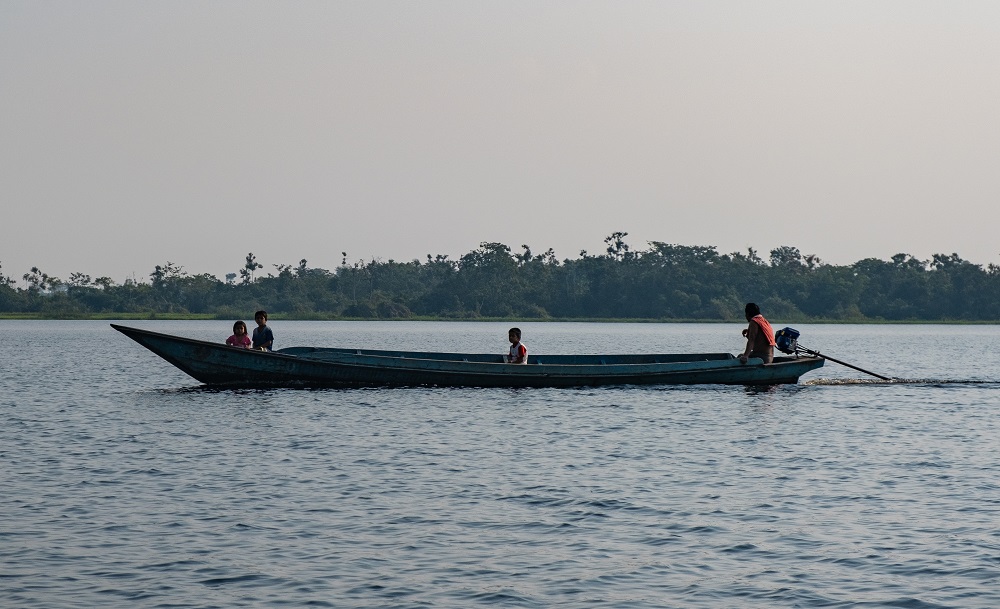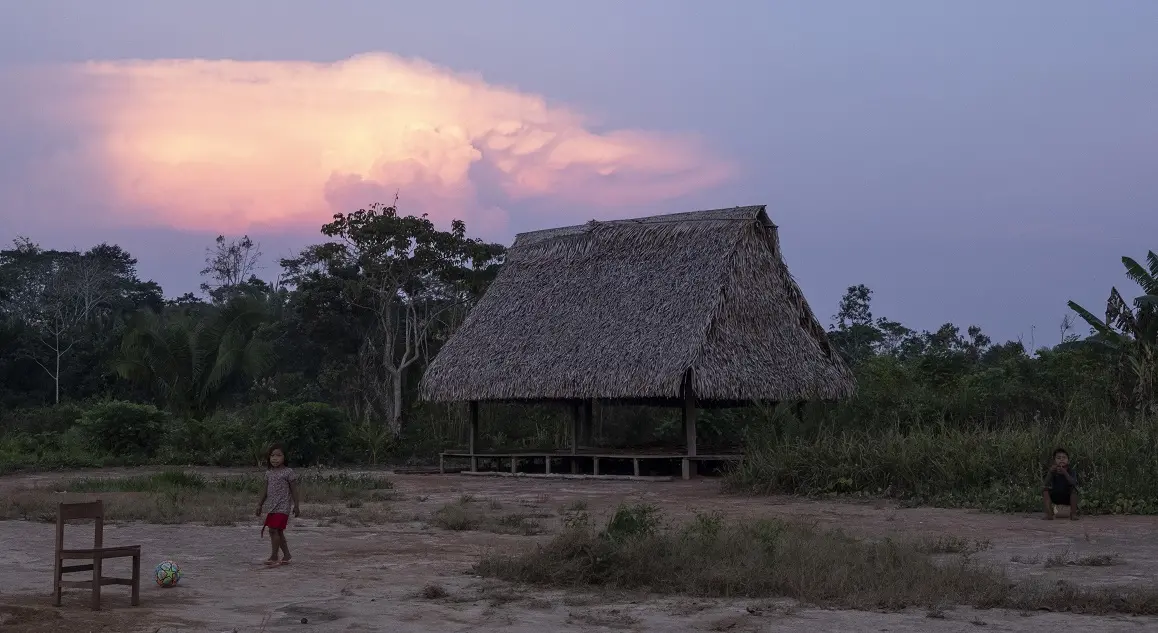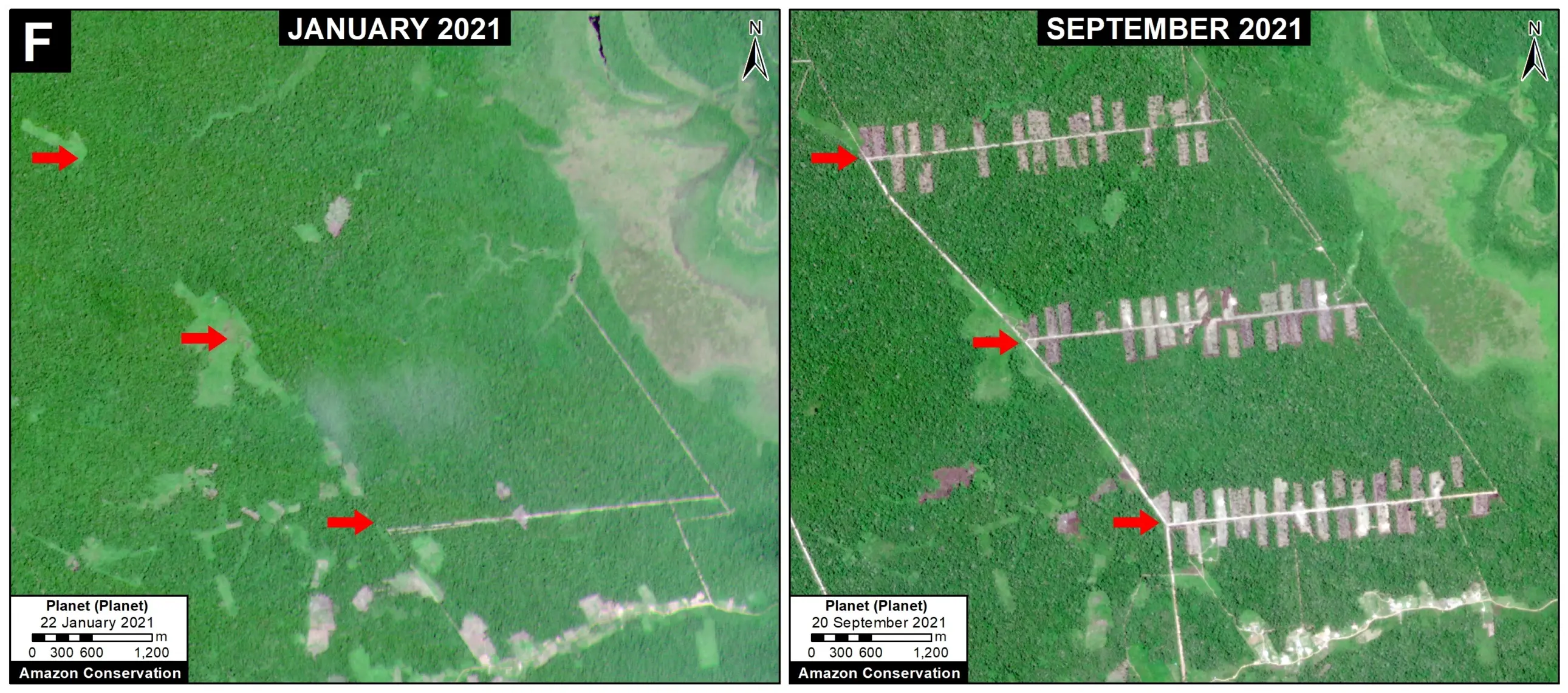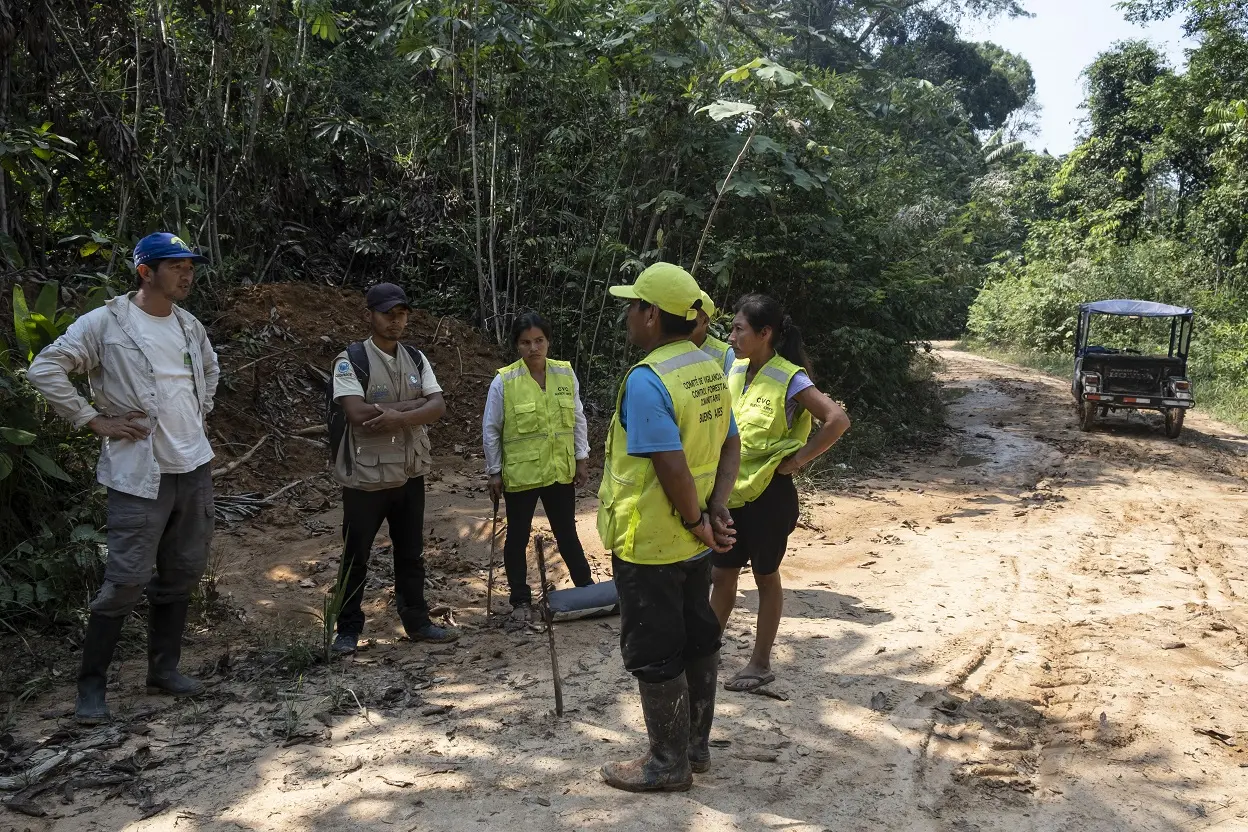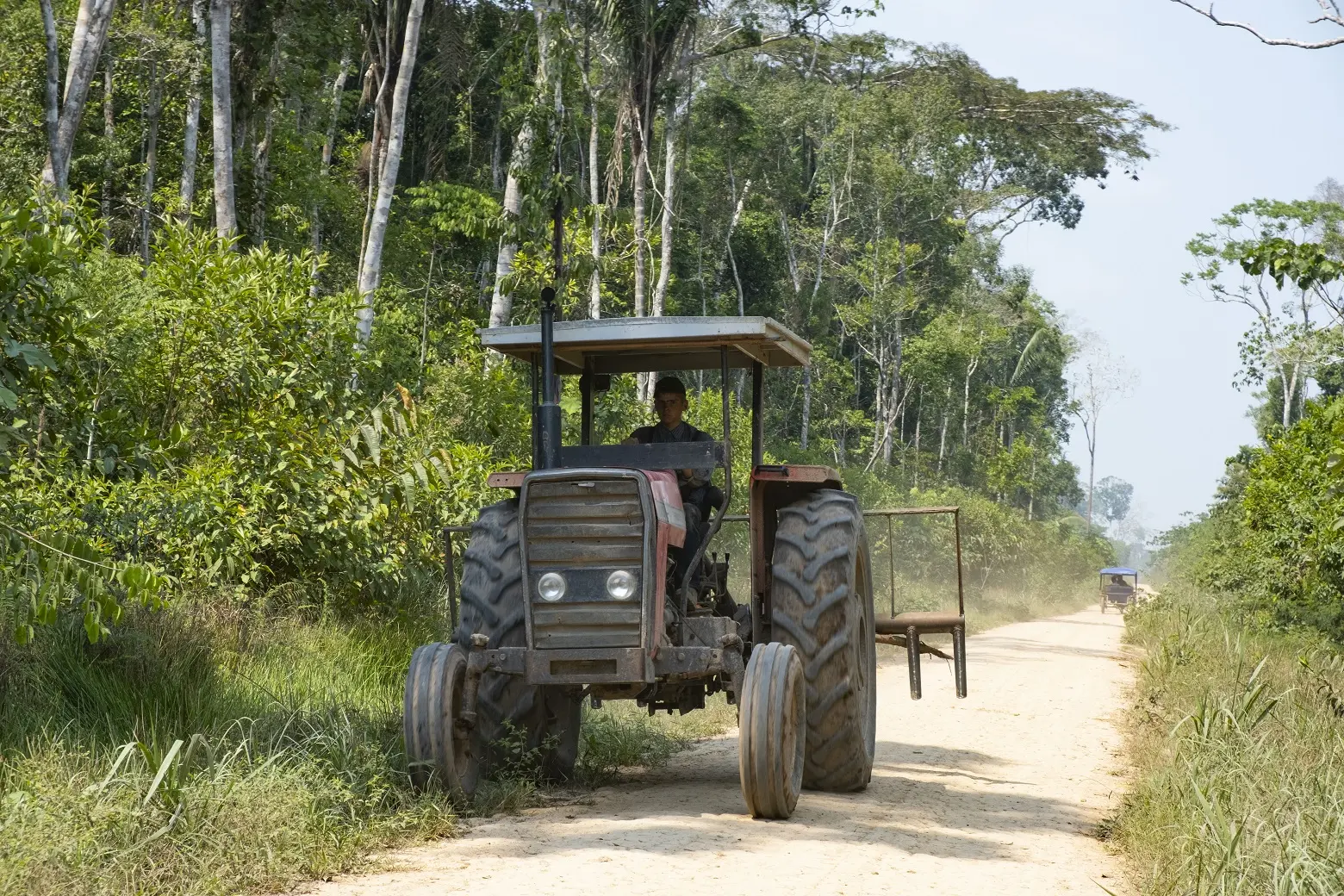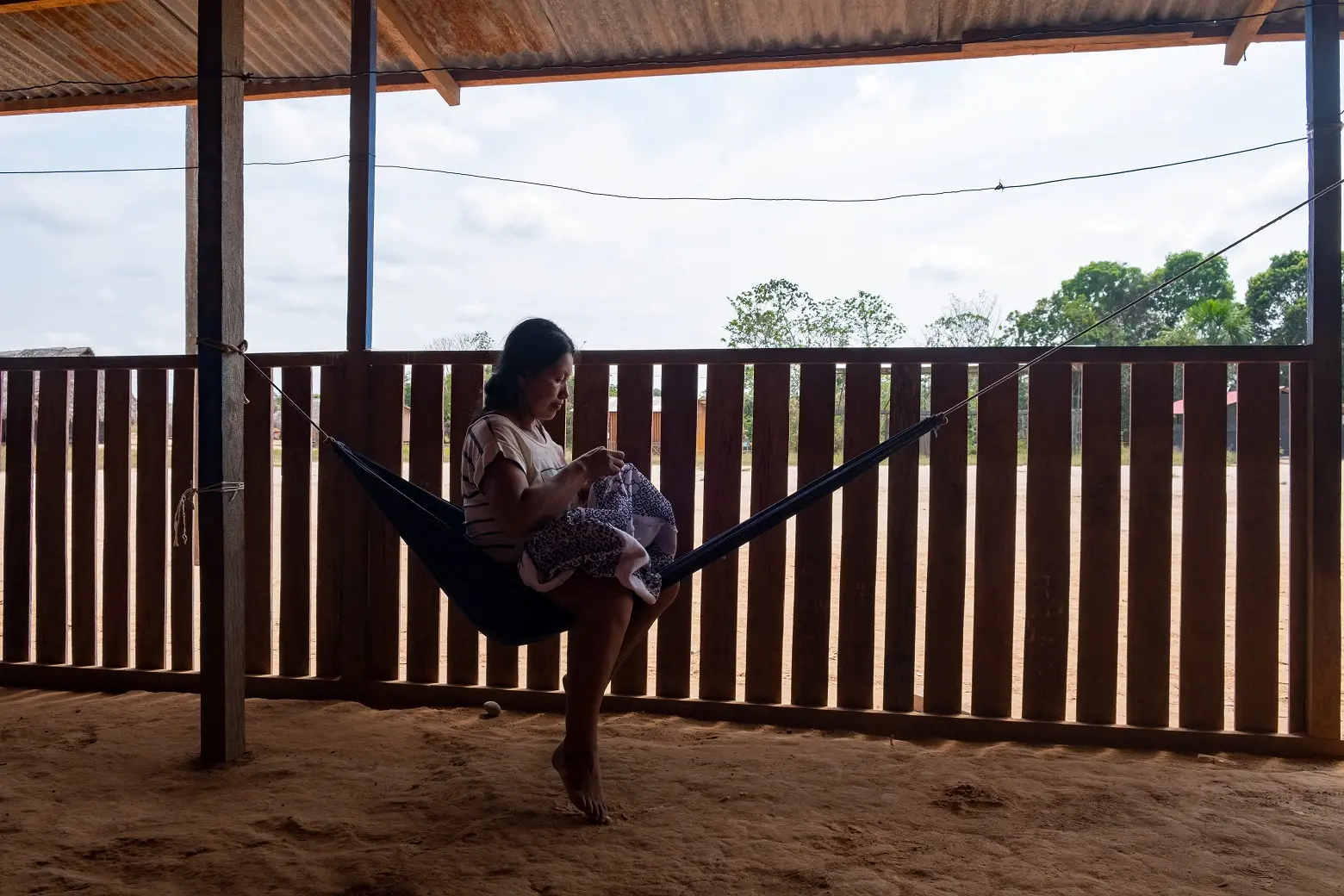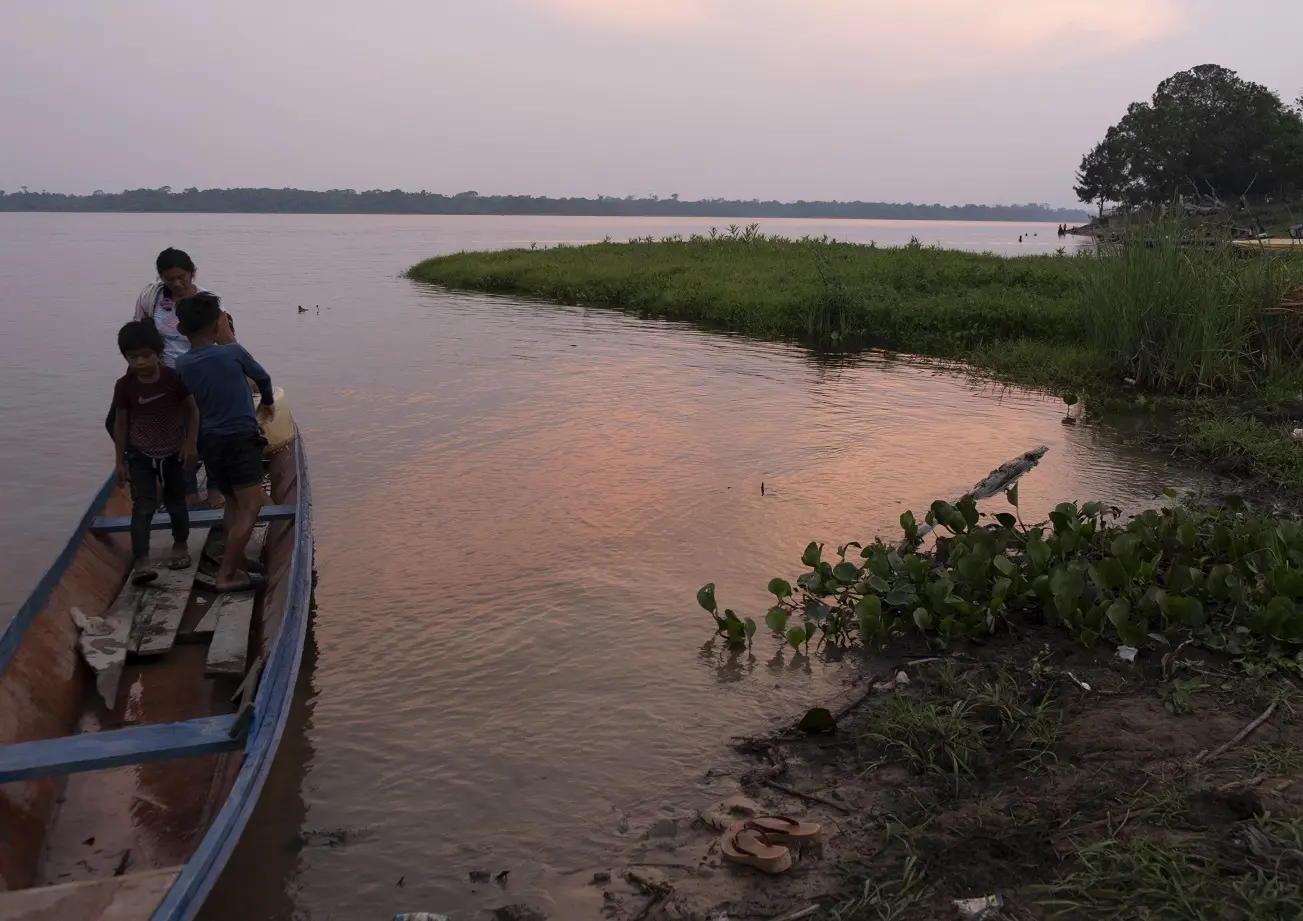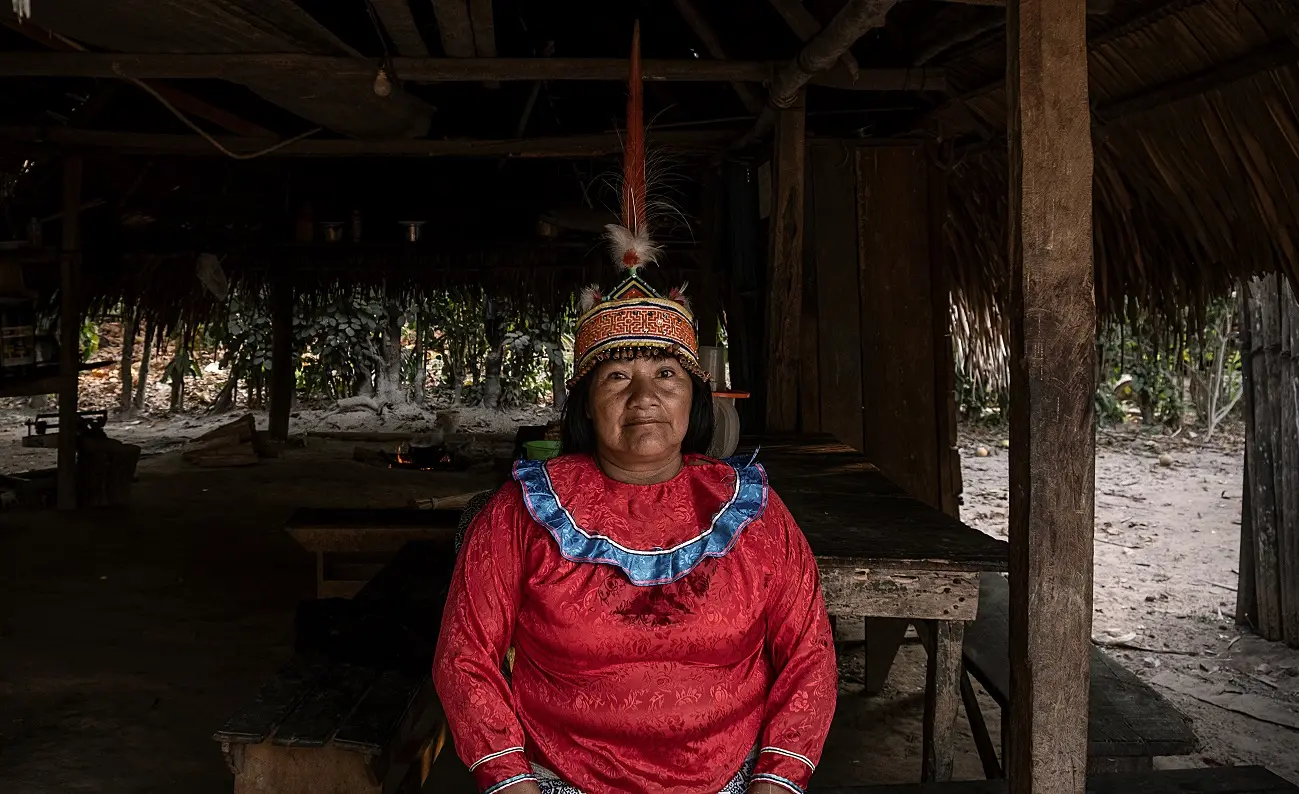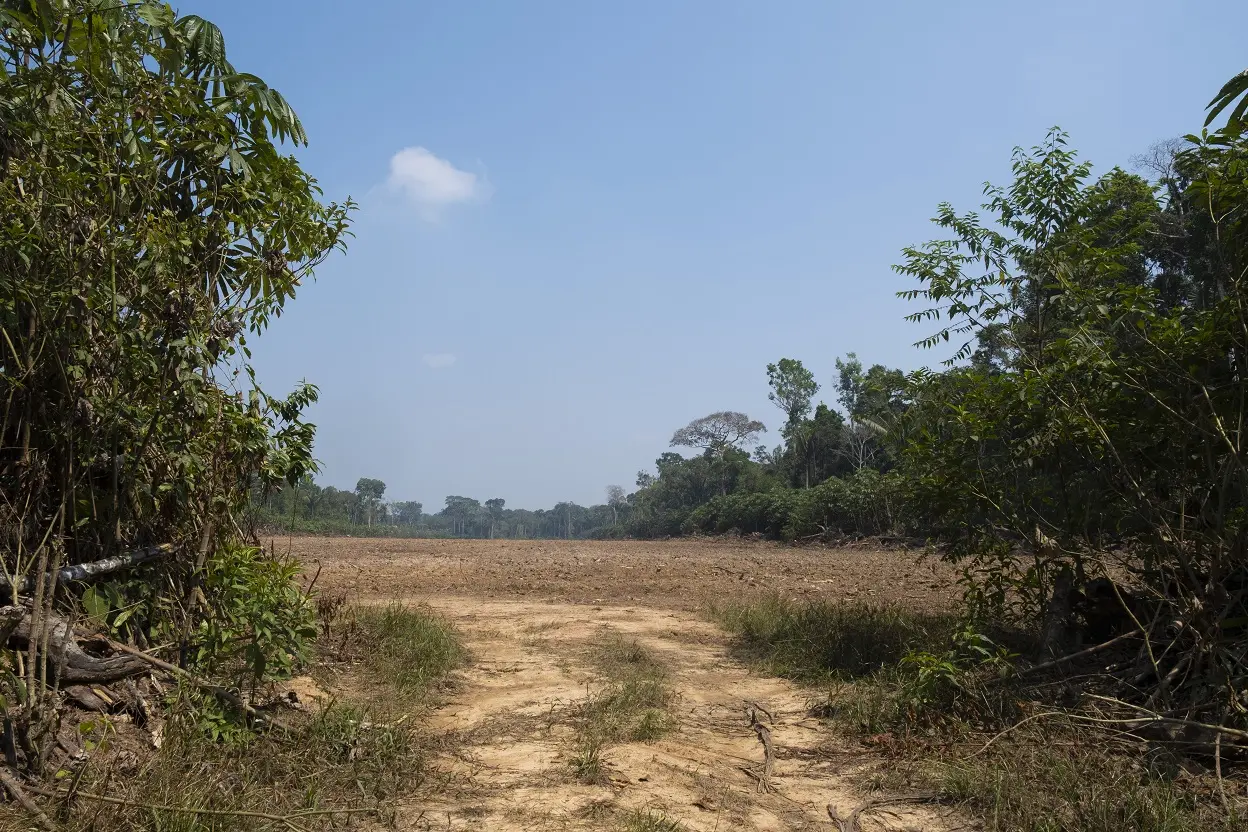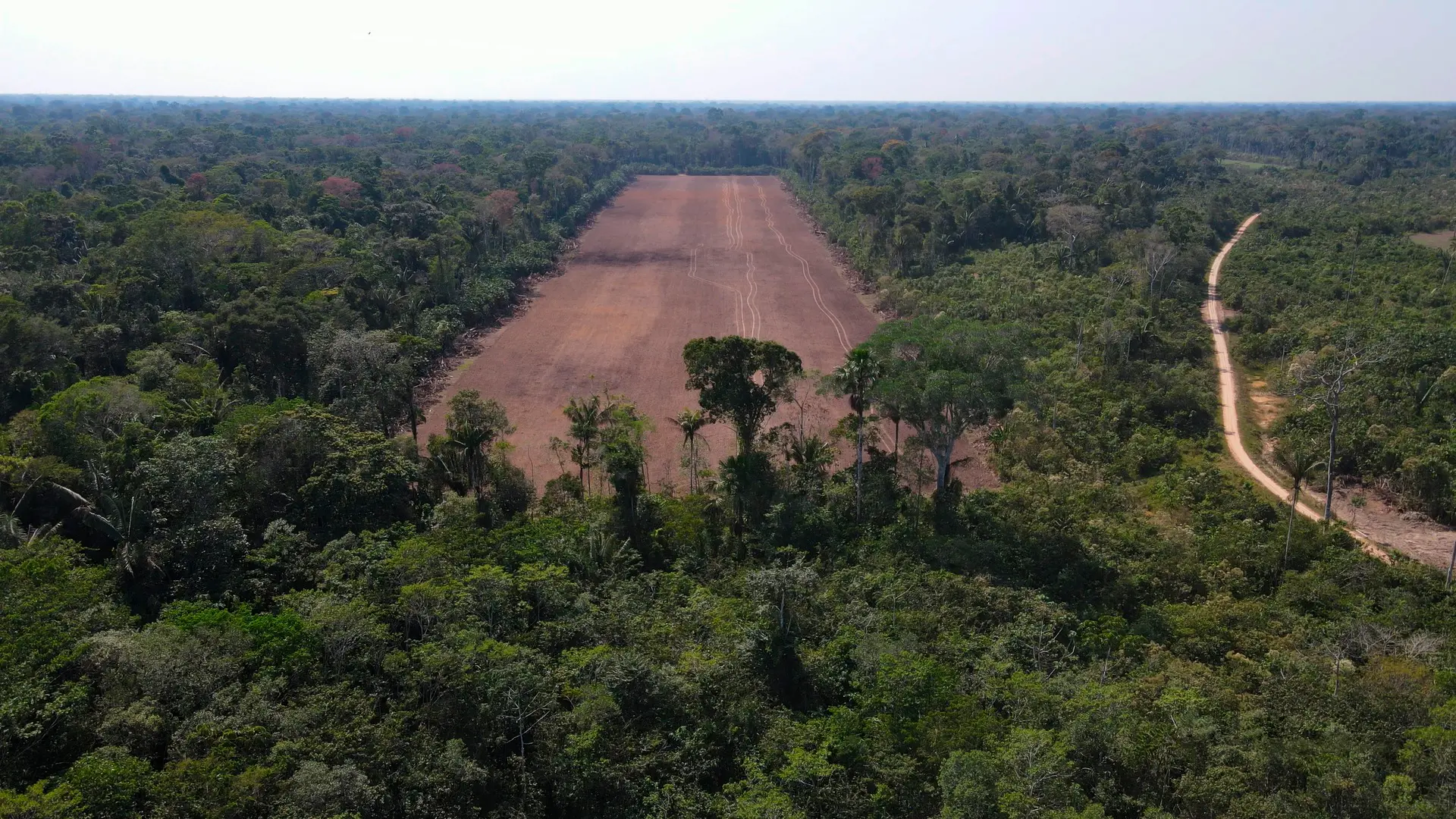This story excerpt was translated from Spanish. To read the original story in full, visit La Mula. You may also view the original story on the Rainforest Journalism Fund website here. Our website is available in English, Spanish, bahasa Indonesia, French, and Portuguese.
Life in the Indigenous communities of Buenos Aires and Caimito, located in the district of Masisea, province of Coronel Portillo, Ucayali region, has changed completely since the arrival of the Mennonites, a Christian movement that acquired communal lands in the area in a non-transparent manner and where they plant rice and soybeans. La Mula traveled to the area and observed the large extensions of primary forests destroyed by this group. As a result, the community leaders have organized themselves to watch over their territories and prevent further deforestation.
The cool morning wind and the sun's rays caress the back of Policarpo Sinarahua Taminchi (50), chief of Buenos Aires. As they walk, he and his companions observe how deforestation is advancing in the forests since a group of Mennonites settled in a part of their communal territory five years ago.

As a nonprofit journalism organization, we depend on your support to fund journalism covering underreported issues around the world. Donate any amount today to become a Pulitzer Center Champion and receive exclusive benefits!
Buenos Aires, where 47 families belonging to the Shipibo-Konibo people live, is located seven hours from the city of Pucallpa and can be reached by outboard motorboat (called colectivo rápido). You can also go by river from Pucallpa to the town of Masisea, and from there take a motorcycle cab to the community.
